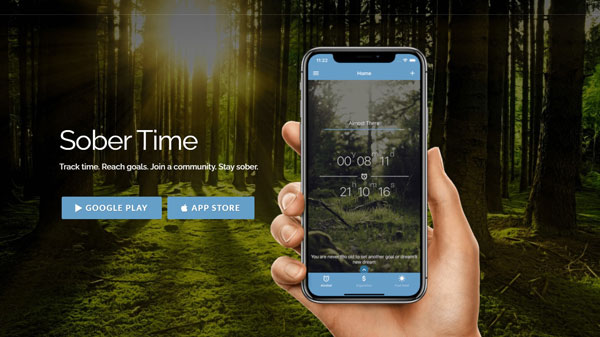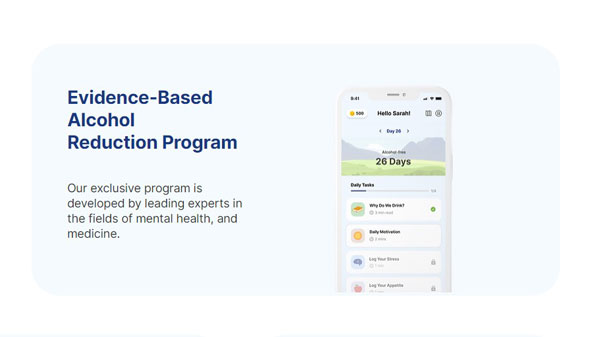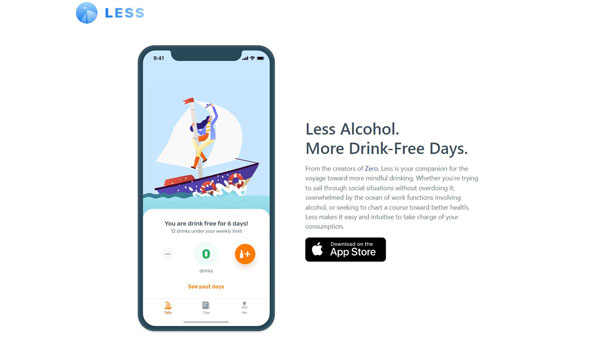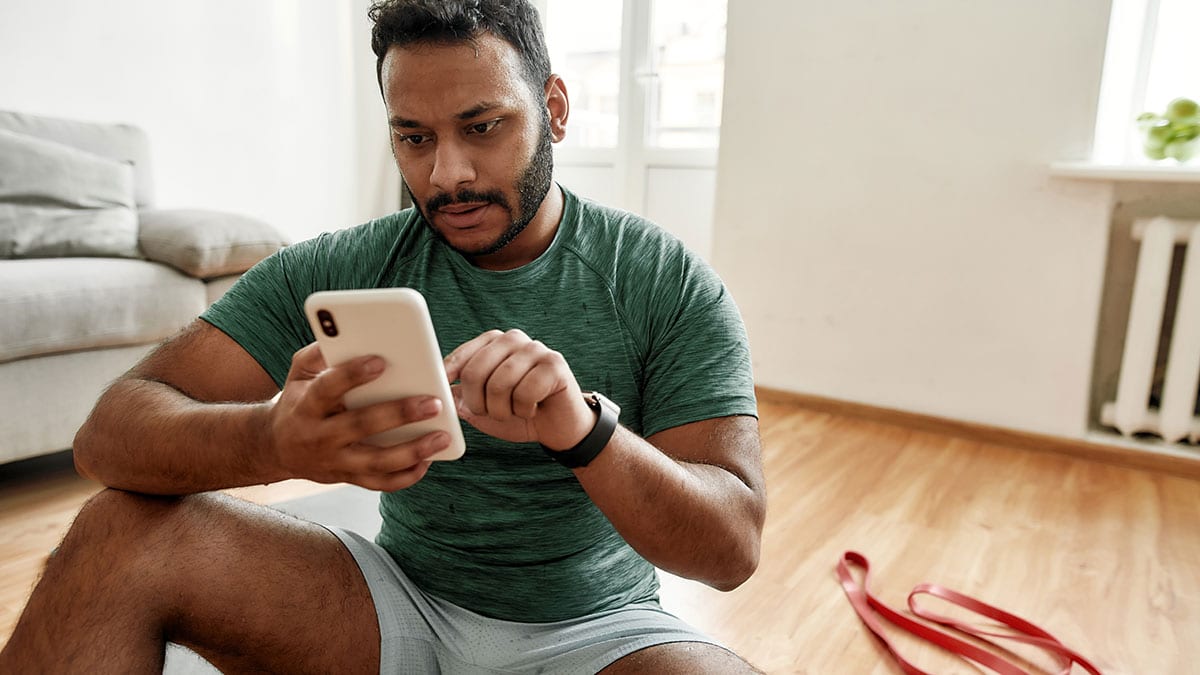Updated February 18, 2025
Have you been trying to take a break for Dry Feb? Dry Feb is an awareness campaign, challenge, and fundraiser put on by the Canadian Cancer Society.
Joining others by going dry this month will give you time to reflect on your habits and make a few healthy lifestyle changes—even if it’s just to see how it makes you feel.
We’ve reviewed some of the top apps out there to help get you started on your journey to drink less alcohol.
I Am Sober

I Am Sober might be a good fit if you’re looking for an app that helps you stay motivated and committed to cutting back on drinking. Track your alcohol-free days, set personal milestones, and see your progress over time. Build better habits with daily pledges and reflections, making it easier to stay on track.
One of the standout features of I Am Sober is its community support. The app connects you with others on a similar journey so you can share experiences, celebrate wins, and get encouragement when needed. It also provides insights into how much money and time you’ve saved by drinking less, which can be a powerful motivator.
Download on Google Play and in the Apple Store. Or check out their website.
Pros
- Daily motivation and pledges
- Progress tracking
- Supportive community
- Track how you feel and recognize patterns
- Free version offers useful features without requiring a subscription
Cons
- Some advanced features require a paid subscription
- Community interactions may not be for everyone
- Notifications and daily check-ins can feel overwhelming
Sober Time

Sober Time is an app that counts sober days with detailed goals, milestones, and statistics that can give you a real sense of ongoing accomplishment. The app also includes community support, with a message board for connecting with other members to share wins, experiences, and challenges.
Download on Google Play and the Apple Store. Or check out their Website
Pros
- Track how much money you’ve saved
- Helps give you a sense of accomplishment
- Community message board for peer-to-peer support
Cons
- Free version can feel like too many ads
- Light on motivation and education elements
Reframe

This is an app that really brings the power of science to help curb or eliminate drinking. Educational and focused on behaviour-changing strategies through activities like games, journaling and meditation. Reframe is very personalized and includes one-on-one coaching.
Pros
- Free 7-day trial
- Personalized
- Science-backed strategies
- Premium version includes one-on-one coaching and video content
- Plenty of courses to take that are backed by neuroscience and psychology
- 24/7 anonymous community support
Cons
- Expensive compared to some of the others
Download it from the Apple Store and Google Play. Or check out their website.
Less

This nautical-themed app wants to help you navigate the waters of sobriety. Primarily a tracker app to help you be in control of your consumption, Less is intuitive, easy to use and has a playful side.
Pros
- Easy-to-use
- Engaging design
- Provides some materials about the importance of reducing alcohol
- Super simple design to track alcohol-free days
- Free
Cons
- The nautical theme may not float your boat
- Light on content if you’re looking for more than a tracker
Download on the Apple Store. Or check out their Website
Common myths about drinking
Not sure if you’re ready to quit? It can be helpful to think about why you might have some resistance to the idea. A great place to start is by debunking some of the common reasons why guys drink.
“Drinking makes me feel good and makes me happier.”
Alcohol has a big impact on the brain and mental health. And we’re not just talking about the day-after hangovers and headaches (although those are bad enough!). Many people think that drinking makes them feel better or is a way to help them ‘unwind’ and relax, but a large and growing amount of research shows that alcohol increases feelings of anxiety after use.
Instead of relaxing you and making you feel better, alcohol contributes to negative feelings and stress, which can become a difficult cycle to break. So, going dry could really help you feel happier, which sounds like a pretty great benefit.
“A few drinks helps me sleep better.”
It may seem like having a couple of drinks before bed helps you sleep better because you fall asleep faster. But falling asleep is not the whole story of a good sleep. Alcohol will affect sleep later in the night as it works its way through the body, particularly impacting REM sleep and increasing sleep disruptions.
Sleep is also foundational to physical and mental well-being. If you sleep well, you tend to feel better physically and mentally.
“Some alcohol is good for the heart.”
It seems like for years, we’ve heard that moderate drinking has minor benefits for heart health. As research piles up, though, it’s looking like that’s not at all the case. And, yes, it turns out that that includes red wine. Simply put, alcohol has been shown to raise blood pressure and increase your chance of cardiovascular disease.
“It will help me save money.”
We joke. The one thing we can all agree on is that alcohol is expensive these days!
It’s no secret that drinking is expensive—especially if you drink out at pubs, bars and restaurants. Costs are rising across the board, and if you can save money and your health, that feels like a win.
More dry days mean more healthy days
Dry Feb is a perfect opportunity to reduce or remove drinking from your life and see the benefits first-hand. Knowing that many other people are participating can make it easier to stick to your goal in social situations. Hopefully, one of the apps will help!
An important note about alcohol disorders
The tips above are intended for casual or light drinkers who are trying to cut down. If someone has an alcohol addiction, they need to speak with a healthcare professional to come up with a safe treatment plan. Check out these resources to get the ball rolling.
Get The Right Tool For The Job
Free mental health resources for men. Manage stress, anxiety and depression with Mindfit Toolkit.



Good read, thank you